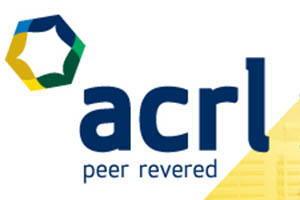On Wednesday, April 17 (11 AM EDT), we’ll be presenting a panel discussion on a topic that’s increasingly dominating the conversation in the scholarly communications community: The Future of Independent and Society Publishing.
This is not a new issue — since the rise of the “Big Deal”, it has become increasingly difficult for a smaller, independent publisher to compete against larger commercial firms, and the continuing consolidation of the market has driven even more pressure. The recent announcement of Plan S has lit a fire under many societies and brought those concerns to a boil. Our description for our webinar is as follows:
In an era of consolidation and regulation, scale has become a key factor in a successful publishing program. This has made it increasingly difficult for smaller independent publishers, particularly research societies, to continue to thrive in the market. The recent publication of Plan S, a set of funder requirements for publication, has accelerated the sustainability concerns of the independent publisher. Though not intentional, these sorts of policies are expected to lead to greater market consolidation and favor larger, commercial publishers who are better positioned to weather the oncoming storm of compliance. In this webinar we will hear from independent societies about their future plans, from consultants working with societies on those plans, and from a larger publishing house that partners with societies about the pluses and minuses of such partnerships.
Phill Jones will moderate and lead the discussion, and our All-Chefs panel will include Robert Harington from the American Mathematical Society, Karin Wulf from The Omohundro Institute of Early American History and Culture, Judy Luther from Informed Strategies, and myself.
We’re hoping to examine questions about why societies are such an important part of the research and communications community, and why publishing is a valuable activity for these groups. We’ll look at the current state of society publishing — is this a time to panic and what options are available for the near and far term? We also want to delve into disciplinary and field variance and how to pay attention to the specific needs and concerns of researchers.
What are your questions? Let us know in the comments below, and we hope you will join us on April 17.
Discussion
14 Thoughts on "Scholarly Kitchen Webinar: The Future of Independent and Society Publishing"
The description of this webinar leaves out a critical word. Amazingly, “journal” (or “serial”) doesn’t appear anywhere in it, but I think by references to Plan S etc., it is probably the intent to only talk about serials publishing by societies. Yet monograph publishing is also under threat and scholarly societies are also increasingly going to be the big losers as “EBA” (evidence based acquisition) programs become the monograph world’s “Big Deals” with the same effect on academic library budgets that serial Big Deals had in the last 20 years. If monographs are completely out of the scope of this session, I urge you to organize a separate one on trends in scholarly monograph publishing.
Thanks Melissa — I tend to live in the journals world so they’re largely my focus. But some of our speakers are more connected — Robert’s society has a robust book publishing program, and Karin comes from the Humanities where books continue to play a major role. We’ll be sure to ask them about this area, but I do think we’ll largely focus on journals, as that’s where the pressure is largely being applied (Plan S for example sets rules for journals beginning in a mere 9.5 months, but has kicked the can down the road for regulating monographs).
Yes, I agree. It would be interesting to have a similar panel on monograph publishing.
Interesting! I would love to listen in. If you have any comp slots for those of us in the smaller of the associations, please let me know.
Ditto!
I’ll be on a train at that time. Will if be possible to catch up with it on another day?
Our Webinars are recorded and made publicly available 60 days after each broadcast.
Why is there a 60 day delay? I am also unable to attend at the scheduled time, but would be unlikely to go back two months after the fact to watch it.
I believe it’s meant to help get people to attend — but if I recall correctly, attendees (or those who have paid to attend) get a link to a recording pretty quickly after the webinar, then it gets made free to everyone after 60 days.
Ah, I didn’t realize there was a charge to register. The registration page appears to be down (it returns a server error). So the answer is “register and pay to watch soon after the event, or wait 60 days to watch free.”
The webinar program is a fundraiser for our not-for-profit organization. But maybe consider it a form of Green OA.
Odd that the link isn’t working, it works fine for me. Perhaps one can go through the main webinar page:
https://www.sspnet.org/events/webinars/
Thanks, David, sounds interesting, on the question of looking into the future, I saw an excellent question and post yesterday from Kevin Cohn: What’s not going to change in the next 10 years? spoiler alert from the post, customer service, interoperability, and data-driven insights were the main 3 areas … maybe an interesting question to ask the chefs (and readers here), what and how smaller independent and society publishers think about these 3 areas within their organizations? I did also hear some society publishers feel it’s easier to compete against the ‘giants’, in an OA world, compared to subscriptions and the global sales reach the big players have. Link to Kevin’s post for those interested https://medium.com/@kevinacohn/whats-not-going-to-change-in-the-next-ten-years-6c71dba71e94
Would love to hear thoughts and forecasts for societies publishing within disciplines without significant public and/or private research funding, e.g., nursing versus medicine (well-funded). I’m looking forward to participating in the webinar. Thanks!




